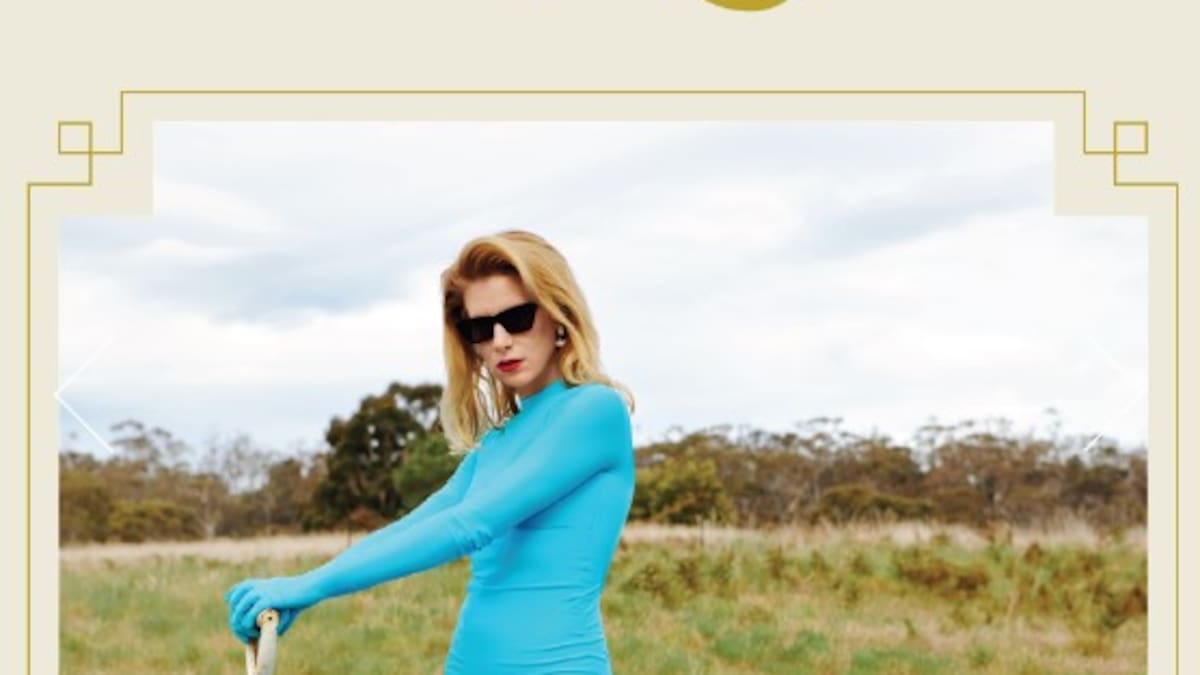The latest issue of literary magazine Folly has been banned from Whitcoulls.
The journal, which sells for $35, is peppered liberally with the f-word while one essay – entitled ‘The c***y girls’ (Folly does not use asterixes) – focuses on the c-word itself, and how a new generation of young women has commandeered it as a form of empowerment.
David Norman, the group managing director of James Pascoe Group – owner of retailers including Whitcoulls, Farmers, Pascoes and Stewart Dawsons – says the repeated use of the ‘c-word’ had led to Folly’s removal.
The Herald sent a list of questions on Friday to David and Anne Norman about the Folly ban.
The pair – two of New Zealand’s most successful business people, with an estimated wealth of $1.1 billion, according to the 2025 NBR Rich List – are famously private operators, preferring not to be in the media spotlight.
David Norman and wife Anne own James Pascoe Group. Photo / File
“I am somewhat reluctant to respond as we do not want to add fuel to the below fire,” Norman said in a return email, copying in Anne as well as Whitcoulls’ chief executive Brenda Pennycuick.
He said he was in Sydney for a board meeting for one of his Australian companies and working to a tight agenda; therefore, his response would be short.
“However, please be aware that Whitcoulls have no relationship whatsoever with Ms Broadmore and the few copies of the Folly that were supplied by a third party… operate under the terms of trade that any magazines supplied are to be ‘family friendly’ in nature.
“The team at Whitcoulls have called out the fact that the repeated use of the ‘c’ word is not acceptable, and hence the magazines have been returned to the supplier.”
In an interview with the Herald last week, Makere Broadmore said Whitcoulls also stocked what she described as literary “smut”, including works of “romantasy” featuring fairy sex.
She also pointed out that Fifty Shades of Grey had featured in Whitcoulls’ Top 100 list. “They were very happy to stock that. I reread some of it on Saturday. It’s revolting.”
Through James Pascoe Group, the Normans acquired Whitcoulls – founded in 1882 – from a private equity group in May 2011. Whitcoulls’ website lists 54 stores across New Zealand.
David Norman said in his response: “We stress there is a major difference between a magazine that is normally placed on open sale as compared to [a] book that can be classified by age group!
“Further, any argument that Ms Broadmore holds should be addressed to her contracted agency, not with Whitcoulls.”
The Herald sent questions to Are Direct, the magazine’s distributor, on Friday. On Sunday, the company said it had no comment to make on the issue.
Folly founder and editor in chief Emily Makere Broadmore. Photo / LinkedIn
According to the journal itself, “Folly exists because good literature should turn you on a little, intellectually, emotionally – sometimes viscerally. We’re not here to bore you. We’re here to dazzle you, disturb you, make you snort into your coffee and send screenshots to friends with a ‘WTF’ caption.
“This third annual issue is culturally charged with works from emerging and established voices across Aotearoa and the world. Alongside provocative essays and lewdly lyrical fiction, you’ll find art from some of New Zealand’s most compelling new visual talents.”
The Whitcoulls ban has surprised Makere Broadmore.
Folly was apparently initially removed from Whitcoulls’ shelves with a suggestion that customers would still be able to buy it from behind the counter.
But a leaked internal Whitcoulls email revealed disquiet that the issue had hit the headlines early last week.
“As the editor has been talking [to] the media that Whitcoulls is holding her magazine hostage… Management now have decided that we will no longer be making them available for sales at any of our Whitcoulls stores,” according to the email obtained by The Post.
“We have requested Are Direct to arrange collection of this magazine from all of our stores and return them back to the publisher. Please do not sell them even when a customer have (sic) requested for them. Just explained (sic) to your customer that the magazine is being returned back to the vendor.”
Makere Broadmore suspects there are deeper, personal issues at play and that her publication has fallen foul of a broader, “cliquey” publishing industry.
“The reality is that people don’t like Folly in the industry. The literary sector do not like what we’re doing. We’re being disruptive. I’m being disruptive.
“We’re all successful, and we’ve been getting success globally. We know people don’t like us, so it makes sense that maybe this has suddenly got quite ugly.”
In all, about 1200 copies of Folly have been printed, around 180 of which were to be distributed through Whitcoulls. The journal is also for sale at selected independent stores, such as Unity, and through its own website.
“Obviously, this is all very good for branding and sales, but it’s also been really quite traumatic and stressful as a small publisher to suddenly not have your stock available for sale, and they’ve been holding it,” said Broadmore.
When the Herald spoke to Makere Broadmore on Thursday, she said supplier Are Direct was hoping to have the magazine stocks back from Whitcoulls today. She was also hoping the journal could now be distributed through Paper Plus.
The publicity has undoubtedly helped sales of the journal. Perhaps the final word should go to Stack Magazines’ Steve Watson, who is quoted on the back cover: “Folly doesn’t have any problem with ruffling a few feathers. It all adds up to a magazine of contradictions that wants to do things differently.”
Editor-at-Large Shayne Currie is one of New Zealand’s most experienced senior journalists and media leaders. He has held executive and senior editorial roles at NZME including Managing Editor, NZ Herald Editor and Herald on Sunday Editor and has a small shareholding in NZME.

